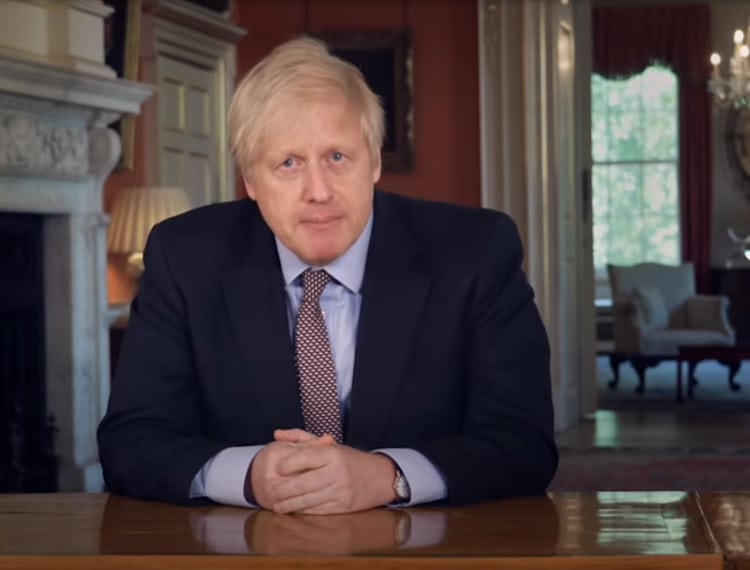Billion pound Covid catch-up plan to tackle impact of lost teaching time, but not for FE! Sector Response

@BorisJohnson and @GavinWilliamson announce Billion pound Covid catch-up plan to tackle impact of lost teaching time
New measures to help primary and secondary pupils catch up. The funding covers one academic year.
Eligible settings are state primary and secondary schools only, not currently early years or 16-19 colleges.
£650m funding for state schools to lift educational outcomes. Whilst heads can decide how the £650m is spent, it is expected that this will be used for small group tuition, with an additional £350m tutoring scheme specifically for the most disadvantaged.
Children in England are set to benefit from a £1 billion Covid “catch-up” package to directly tackle the impact of lost teaching time, the Prime Minister and Education Secretary have confirmed.
Department for Education have announced a billion pound funding for a COVID19 catch-up plan to tackle the impact of lost teaching time. Despite promising to support young people, it fails to cover more than two thirds of England’s 16 to 18 year olds.
As plans continue for a full return to education from September, the government has announced £650 million will be shared across state primary and secondary schools over the 2020/21 academic year.
Whilst head teachers will decide how the money is spent, the government expects this to be spent on small group tuition for whoever needs it.
This one-off grant to support pupils in state education recognises that all young people have lost time in education as a result of the pandemic, regardless of their income or background.
Separately, a National Tutoring Programme, worth £350 million, will increase access to high-quality tuition for the most disadvantaged young people over the 2020/21 academic year.
This will help accelerate their academic progress and prevent the gap between them and their more affluent peers widening.
This £1 billion package is on top of the £14 billion three-year funding settlement announced last year – recognising the additional work schools will need to do to help students to catch up.
 Prime Minister Boris Johnson said:
Prime Minister Boris Johnson said:
“I want to once again thank teachers, childcare workers and support staff for the brilliant work they have been doing throughout the pandemic.
“This includes providing remote education for those not in school, as well as face-to-face education for vulnerable children and the children of critical workers.
“This £1billion catch-up package will help head teachers to provide extra support to children who have fallen behind while out of school.’
‘I am determined to do everything I can to get all children back in school from September, and we will bring forward plans on how this will happen as soon as possible.”
 Education Secretary Gavin Williamson said:
Education Secretary Gavin Williamson said:
“We cannot afford for any of our children to lose out as a result of Covid-19. The scale of our response must match the scale of the challenge.
“This package will make sure that every young person, no matter their age or where they live, gets the education, opportunities and outcomes they deserve, by spending it on measures proven to be effective, particularly for those who are most disadvantaged.
“The plan will be delivered throughout the next academic year, bringing long term reform to the educational sector that will protect a generation of children from the effects of this pandemic.”
The National Tutoring Programme is designed to reach up to two million of England’s most disadvantaged children.
The Government’s ambition is that all providers running holiday clubs and activities for children over the summer holiday will be able to open, if the science allows.
Guidance will be provided to the sector on how to implement the protective measures necessary to open safely, and to parents on how to minimise the spread of the virus if they choose to attend.
Today the Education Endowment Foundation has also published a guide to help school leaders and staff decide how to use this funding to best support their pupils and their outcomes.
It provides advice on support strategies schools can use in deciding how to support pupils, including intervention programmes, extra teaching capacity, access to technology or summer schools.
The new package builds on the government’s work throughout the pandemic to support the children most in need.
Nurseries, schools and colleges remained open to children from the most vulnerable families and have gone above and beyond to keep in contact with them.
The Department for Education has also invested more than £100 million in remote education – including delivering laptops and internet access to those who need them most.
 In response, David Hughes, Chief Executive of the Association of Colleges (AoC) said:
In response, David Hughes, Chief Executive of the Association of Colleges (AoC) said:
“There are a million 16 to 18 year olds in England, and almost 700,000 of them study in colleges. They deserve as much support to overcome the challenges thrown up by COVID19 as every other age group, including their peers in schools. That’s why we have been working with officials to help design a funding boost for colleges to support their students.
“The government is right to take action to help school pupils catch up for lost time and to focus on those who are already disadvantaged but it is indefensible to overlook the needs of the 700,000 in colleges. I expect their exclusion from this announcement to be followed rapidly by clarification on the funding and support for college students. We are in contact with the Department for Education and hope to have this rectified as soon as possible.”
 Sir Peter Lampl, founder and chairman of the Sutton Trust and chairman of the Education Endowment Foundation (EEF), said:
Sir Peter Lampl, founder and chairman of the Sutton Trust and chairman of the Education Endowment Foundation (EEF), said:
“Despite the heroic efforts of schools, many pupils’ learning has suffered as a result of school closures. These children are drawn disproportionately from disadvantaged communities and need extensive support.
“We are delighted that the government is announcing a large sum today to benefit those pupils who need it the most. We are proud to support the tutoring programme. Extensive trials show that high-quality tuition is a cost-effective way to enable pupils to catch up. Through a collaboration of organisations across the country, our aim is to make this tuition available to tens of thousands of primary and secondary school pupils. Our hope is that it becomes a powerful tool for teachers in the years to come.”
“When it comes to schooling, Covid19 has done huge damage, at speed, to our children’s prospects, putting their futures in danger. Many pupils have fallen significantly behind in their learning. These pupils come disproportionately from poorer homes.
“There is strong evidence that high-quality tuition is a cost-effective way to enable pupils to catch up. While it is certainly no silver bullet, access to tuition will be key to supporting the work of teachers in mitigating the impact of school closures in the coming months and years.
“The government’s support for more high-quality tuition for our poorest children from this summer is a huge step forward. The National Tutoring Programme is a major opportunity to not only reverse the damage done by school closures, but to also build a fairer education system for the future.”
 Professor Becky Francis, CEO of the Education Endowment Foundation (EEF), said:
Professor Becky Francis, CEO of the Education Endowment Foundation (EEF), said:
“Tutoring is the catch-up approach supported by the strongest evidence we have. This is a tremendous opportunity to offer bespoke support for disadvantaged pupils, and to build a positive legacy from the present crisis.”
Andy Ratcliffe, CEO of Impetus, said:
“We have seen first-hand the power of tutoring to help young people achieve their potential. We are proud to be part of this collective effort to get high-quality tutoring to those who need it most.”
Ravi Gurumurthy, CEO at Nesta, the innovation foundation, said:
“When children finally go back to school, many will have fallen behind their peers. Through one-to-one and group tuition, we can reach a significant proportion of children quickly, and tackle the growing inequality in educational achievement.”
 Liberal Democrat Education spokesperson Layla Moran said:
Liberal Democrat Education spokesperson Layla Moran said:
“These initiatives need to form part of a wider national plan agreed with teachers, experts, unions and others. The plan must be flexible and work for school leaders’ circumstances on the ground. Top-down initiatives with funding tied to them won’t make a big enough difference if schools are unable to fully reopen safely.
“Ministers must also guarantee that this is additional funding, and will not come at the expense of money for anything else. I very much hope the tutoring scheme will draw on the abilities and experience of existing supply teachers and recently retired teachers. They can deliver top tutoring at the scale we need through a Teach for Britain recruitment campaign.
“In addition, these measures need to come alongside more efforts to eliminate hunger amongst children, including an emergency uplift to child benefit during this crisis and the introduction of a catch-up premium for the most disadvantaged pupils.”
 Responding to the announcement by government of a £1 billion Covid “catch up” package to tackle the impact of lost teaching time, Cllr Judith Blake, Chair of the Local Government Association’s Children and Young People Board, said:
Responding to the announcement by government of a £1 billion Covid “catch up” package to tackle the impact of lost teaching time, Cllr Judith Blake, Chair of the Local Government Association’s Children and Young People Board, said:
“It is positive that the Government has announced this funding to help children catch up on lost teaching time.
“Teachers have done a fantastic job keeping schools open to vulnerable families and children of key workers during the coronavirus pandemic and more recently expanding schools to more pupils.
“Councils want to work with schools and government to help children catch-up on any school work they may have missed, and ensure as many pupils as possible return to school in September, as it is absolutely vital that children do not fall further behind in their development.
“We now look forward to seeing the guidance for this plan.”
 Anne Longfield, Children’s Commissioner for England, responding to the Government’s announcement on extra funding for schools, said:
Anne Longfield, Children’s Commissioner for England, responding to the Government’s announcement on extra funding for schools, said:
“I have been calling on the Government to recognise the urgent need to help the millions of children in England whose wellbeing and education has been affected by lockdown, so this is a welcome financial commitment.
“It is essential now that this funding is used to help those schools and children who need it most. Writing the cheque is only the beginning, and it will require a national effort to provide the high quality help and support required.
“That must start with a drive to get as many children as possible into school before the holidays, identifying those children who would benefit most from activities in summer schools, and making sure that plans are in place so that all children are back in the classroom in September.”
 Rebecca Long Bailey MP, Labour’s Shadow Education Secretary, responding to the Government’s announcement on lost teaching time due to Covid-19, said:
Rebecca Long Bailey MP, Labour’s Shadow Education Secretary, responding to the Government’s announcement on lost teaching time due to Covid-19, said:
“The funding and the principle of a tutoring scheme is certainly a welcome start but it needs to be backed with a detailed national education plan to get children’s education and health back on track.
“We want to see all pupils return to school safely as soon as possible and repeat our call on the Government to urgently convene a taskforce across the sector to develop detailed plans in collaboration with trade unions, local authorities, parent’s organisations, scientific and health experts.
“The present plans lack detail and appear to be a tiny fraction of the support our pupils need at this critical time. The Government must take its responsibility to support children’s learning and their safe return to school seriously and demonstrate leadership in making this happen.”
 Kevin Courtney, Joint General Secretary of the National Education Union, said:
Kevin Courtney, Joint General Secretary of the National Education Union, said:
“This billion pounds for schools in England is a welcome recognition of the importance of education.
“However, if social distancing is still required in September a full time return to education means Government will have to find extra education staff and extra teaching spaces.
“The Government must urgently engage with unions and others in the sector to plan for such a return – the National Education Union’s 10-point-plan is a good place to start.
“The Government should right now be working on a Summer Holiday Local Offer, on delivering broadband to all those children who still need it and reading books to all children in receipt of free school meals”.
 David Laws, Executive Chair of the Education Policy Institute said:
David Laws, Executive Chair of the Education Policy Institute said:
“We are concerned that the government’s funding plan for learning “catch up” is poorly targeted and unlikely to prevent a significant increase in the disadvantaged gap between poorer children and the rest, as a consequence of the schools lockdown.
“In spite of the very clear evidence that the most disadvantaged children are suffering the greatest learning loss, the government has chosen to allocate the bulk of the extra cash to schools without any reference to disadvantage. This implies that a school with a very affluent catchment will receive the same funding as a similar sized school in the poorest part of the country. In our view, this is not an efficient or well targeted policy, if the aim is to ensure that the most vulnerable learners don’t fall badly behind. Increasing the Pupil Premium would have been a more sensible approach.
“We are also concerned that there seems to be no extra financial support for early years or sixth form students – these phases are crucially important, yet they have suffered from persistent funding neglect over a sustained period of time.
“The scheme to boost one to one and small group tuition is very welcome, but it is important that it is not overly complex or centrally procured – the government should avoid the myriad of delays and errors that have occurred under the free school meal voucher and free laptop schemes. The tutoring programme needs to be able to deliver support speedily and flexibly, with school leaders being empowered to purchase the right resources for their schools.”











Responses